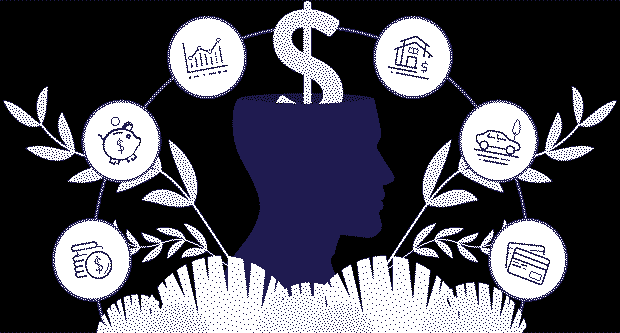Question: What could be the financial advice for young people? Provide some essential tips for a secure future.
Navigating the world of personal finance can be overwhelming, especially for young people who are just starting their journey towards financial independence. Developing good financial habits early on can pave the way to long-term stability and success. Here are some essential financial tips tailored for young adults to help you manage your money wisely and build a secure future.
1. Create a Budget
Budgeting is the foundation of financial management. It involves tracking your income and expenses to ensure you’re living within your means. Here’s how to start:
- Track Your Income: Begin by listing all sources of income, including your salary, allowances, and any side gigs.
- Document Your Expenses: Categorize your monthly expenses, from rent and utilities to groceries and entertainment.
- Set Spending Limits: Allocate specific amounts for each category to avoid overspending.
- Review and Adjust: Regularly assess your budget and make adjustments as needed to align with your financial goals.
A well-maintained budget helps you make informed financial decisions and avoid unnecessary debt.
2. Build an Emergency Fund
An emergency fund is crucial for financial security. It acts as a safety net in case of unexpected expenses such as medical bills or job loss. Here’s how to build one:
- Start Small: Aim for an initial goal of $1,000 to cover common emergencies.
- Automate Savings: Set up automatic transfers from your checking account to your savings account.
- Save Consistently: Regularly contribute to your emergency fund until it covers three to six months’ worth of living expenses.
- Cut Unnecessary Costs: Identify and reduce non-essential expenses to increase your savings.
Having an emergency fund reduces the need for high-interest debt during crises.
3. Invest in Financial Education
Understanding personal finance is vital for making informed decisions. Focus on learning about:
- Budgeting and Money Management: Learn how to create and stick to a budget effectively.
- Investing: Explore different investment options like stocks, bonds, and real estate. Understand the power of compounding returns.
- Debt Management: Learn about credit, loans, and how to manage debt responsibly.
- Retirement Planning: Familiarize yourself with retirement accounts and the importance of early saving.
Educational resources such as books, online courses, and financial advisors can enhance your financial literacy.
4. Seek Guidance and Mentorship
Don’t hesitate to seek advice from those with financial experience. Whether it’s family members, mentors, or financial advisors, their insights can be invaluable. They can offer guidance tailored to your unique situation and help you avoid common pitfalls.
5. Save for Retirement Early
Taking advantage of employer-sponsored retirement plans is crucial. If your job offers a 401(k) match, contribute enough to receive the full match. This ensures you’re not leaving free money on the table. Consider:
- Index Funds: These are a simple and effective investment choice for beginners.
- Roth IRAs: If eligible, a Roth IRA allows for tax-free growth and withdrawals, making it a great option for young savers.
Starting early with retirement savings benefits from decades of compound growth.
6. Manage Debt Responsibly
Debt can be a significant burden, especially for young adults. Here’s how to handle it wisely:
- Avoid Unnecessary Debt: Use credit cards sparingly and avoid high-interest loans.
- Build Credit: Establish a positive credit history by making timely payments and managing credit responsibly.
- Monitor Your Credit Score: Regularly check your credit report and score to ensure accuracy and address any issues promptly.
Responsible debt management can improve your credit score and financial opportunities.
7. Be Cautious with Buy-Now-Pay-Later (BNPL) Services
BNPL services can lead to overspending if not used carefully. While they offer convenience, they can also encourage debt accumulation if used for everyday purchases. Experts recommend:
- Use Sparingly: Only use BNPL services for planned purchases and avoid using them for routine expenses.
- Track Payments: Keep track of all BNPL payments to ensure you don’t miss any.
BNPL services generally don’t help build credit, so relying on them can be detrimental to your financial health.
8. Understand Your Pay and Pensions
As you start working, ensure you understand your pay and pension contributions. Check that you’re receiving at least the minimum wage and verify that your taxes and deductions are accurate. If you’re eligible, consider contributing to a workplace pension plan, even if you’re under 22 or earn less than £10,000 annually.
9. Manage Living Expenses
Rent and utility bills are often the largest monthly expenses. To manage these costs:
- Budget for Rent: Ensure you understand how much rent you can afford before signing any lease agreements.
- Pay Bills on Time: Avoid late fees and damage to your credit rating by paying bills promptly.
Consider exploring ways to reduce household expenses, such as switching energy providers or finding cost-effective alternatives.
10. Avoid Financial Scams
Be vigilant about financial scams, such as fraudulent investment opportunities or “free government grants.” Always verify the legitimacy of any financial offer and seek advice if something seems too good to be true.
11. Protect Your Possessions
Insurance can safeguard valuable possessions and mitigate financial loss. Consider:
- Contents Insurance: Protect your belongings if you’re renting a home.
- Mobile Phone Insurance: Insure valuable gadgets to avoid high replacement costs.
- Car Insurance: If you drive, ensure you have adequate coverage and look for ways to reduce insurance costs.
12. Boost Your Income Wisely
If you need to increase your income, explore legitimate options such as part-time jobs or freelance work. Avoid risky investments like cryptocurrency or individual stocks without thorough research.
Conclusion
Managing your finances as a young adult can be challenging, but with careful planning and informed decisions, you can achieve financial stability and security. By creating a budget, building an emergency fund, investing in financial education, seeking guidance, and managing debt responsibly, you’ll be well on your way to a prosperous financial future. Start implementing these tips today to lay a solid foundation for your financial well-being and success.



